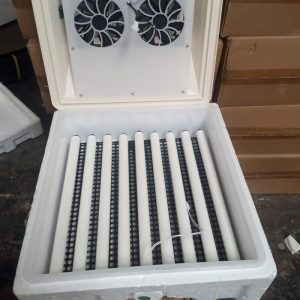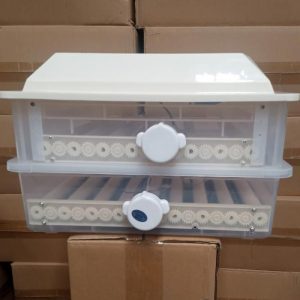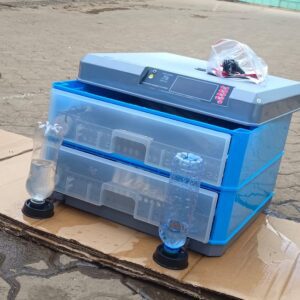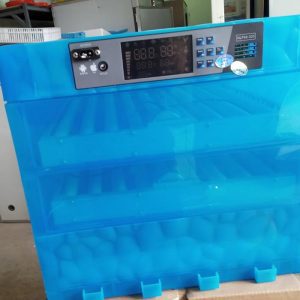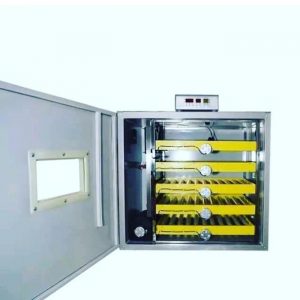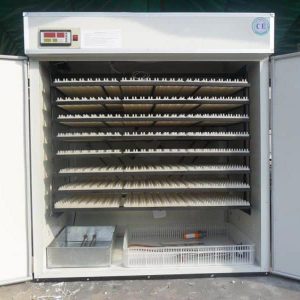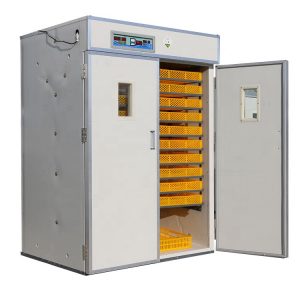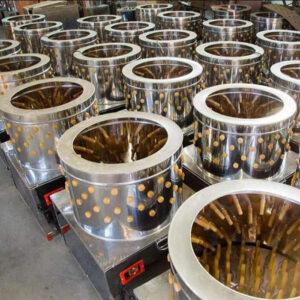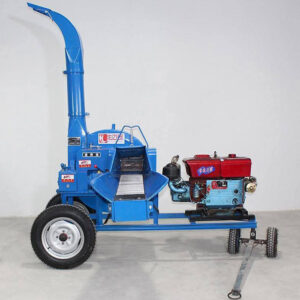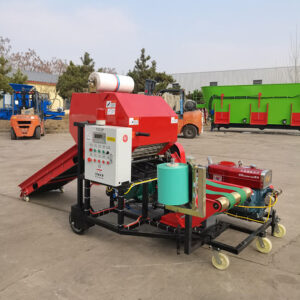No products in the cart.
0708 045 853
Next to The Imaara Shopping Mall, Mombasa Road
Solar powered 56 Eggs incubator
Solar powered 64 Egg incubator
68 egg chicken incubator
Solar powered 104 eggs incubator
Solar powered 128 eggs incubator
Solar powered 136 eggs incubator
Solar powered 192 eggs incubator
204 chicken egg incubator
Industrial 264 eggs incubator
Solar powered 300 eggs incubator
Industrial 352 eggs incubator
Industrial 528 eggs incubator
Industrial 1056 eggs incubator
Industrial 2112 eggs incubator
Industrial 3520 eggs incubator
What Is an Egg Incubator?
An egg incubator is a machine designed to mimic the natural conditions that a brooding hen provides, including warmth, humidity, ventilation, and egg turning. Instead of relying on hens to hatch chicks (which is limited in scale and often unreliable), farmers use incubators to hatch large numbers of eggs consistently.
Whether you are raising chickens, ducks, turkeys, or quail, an egg incubator gives you better control over your hatchery and helps scale your business faster.
Why Invest in an Egg Incubator?
Here are the main advantages poultry farmers enjoy when they use an egg incubator:
Increased Productivity: A hen can only brood a small number of eggs at a time. With an incubator, you can hatch dozens or even thousands of eggs in one cycle.
Consistent Hatch Rates: Weather changes, predators, and natural stress can cause hens to abandon their eggs. An incubator provides controlled conditions, leading to consistent hatching results.
Year-Round Hatching: With an egg incubator, you are no longer tied to natural seasons. You can hatch chicks any time of year, ensuring steady supply for your market.
Better Business Planning: Incubators allow you to predict and plan for chick production, which is critical for farm scheduling, supply contracts, and managing customer orders.
Healthier Flocks: Using an incubator reduces the strain on hens. Instead of being tied down to brood eggs, hens remain productive in laying, improving overall flock health and egg supply.
Best Practices for High Hatch Rates
If you want to get the most out of your egg incubator, here are proven practices that boost hatchability:
Maintain the Right Temperature: For chickens, the ideal incubation temperature is around 37.5°C (99.5°F). Even small deviations can affect chick development.
Regulate Humidity Properly: Aim for around 50–55% humidity during most of incubation and raise it to 65–70% in the final three days before hatching.
Choose Quality Eggs: Always select fresh, fertilized eggs less than 7 days old. Avoid washing eggs since it removes the protective cuticle.
Turn Eggs Regularly: Eggs should be turned at least 3–5 times per day. Automatic incubators handle this for you, but if manual, set reminders.
Ensure Good Ventilation: Adequate airflow is essential for oxygen exchange. Keep vents open according to manufacturer guidelines.
Clean and Disinfect: After every hatch, clean the incubator thoroughly. Use mild disinfectants and dry completely before the next batch.
Record Keeping: Track incubation dates, hatch rates, temperature readings, and issues. Over time, this helps you refine your process.
Egg Incubator Maintenance Tips
Like any machine, an incubator requires regular care to remain effective. Proper maintenance extends its lifespan and ensures reliable hatching cycles.
Clean After Every Hatch: Remove shells, membranes, and chick fluff. Wash trays, turning racks, and water reservoirs.
Check Heating and Turning Systems: Ensure that heating elements and motors are working correctly before starting a new cycle.
Monitor Sensors: Sensors for temperature and humidity can drift over time. Calibrate or replace them if readings seem off.
Inspect Power Source: If using a battery or solar-powered incubator, check battery charge and solar panel connections regularly.
Spare Parts: Keep spare bulbs, fuses, fans, or heating elements on hand, especially if you are far from supply centers.

How an Egg Incubator Improves Profitability
Beyond the technical aspects, let’s talk business. A properly managed egg incubator can dramatically increase your farm’s profitability:
Lower chick purchase costs: Instead of buying chicks from outside suppliers, hatch your own.
Greater independence: Control your own breeding schedules and reduce reliance on third parties.
Expanded sales: Not only can you hatch chicks for your farm, but you can also sell day-old chicks for additional income.
Reduced losses: By avoiding poor hatch rates and natural risks, you protect your investment in eggs.
For many Kenyan farmers, the profit margin between buying chicks and hatching with an egg incubator quickly justifies the initial cost.
Choosing the Right Egg Incubator for Your Farm
Although this article does not focus on types, it’s important to highlight some decision factors when buying:
Scale of your farm (small, medium, commercial).
Power availability (electric, battery, solar, or hybrid).
Automation needs (manual, semi-automatic, fully automatic).
Warranty and after-sales support (local support matters).
At Superhatch Poultry Equipment, we provide incubators that fit every scale, from small starter models to large commercial units. Each incubator comes with installation, training, and warranty services so that you hatch successfully from the start.
Frequently Asked Questions (FAQs)
1. Is an egg incubator better than natural hatching?
Yes. An egg incubator provides consistency and scale. While hens can hatch small numbers, incubators allow farmers to hatch hundreds or thousands of eggs with higher success rates.
2. How long does it take to hatch eggs in an incubator?
For chickens, the incubation period is about 21 days. Ducks and turkeys take longer (28 days), while quail hatch in 17–18 days.
3. Can I use one incubator for different poultry?
Yes, most incubators can hatch different types of eggs (chickens, ducks, turkeys, quails). However, each species may have slightly different temperature and humidity requirements.
4. How much does an egg incubator cost in Kenya?
Prices vary by size and automation. Small units can cost under KSh 13,000, while large automatic or solar-powered units can cost KSh 100,000 or more. At Superhatch, we help you match a model to your budget and scale.
Product categories
Recent products
-

20 Birds chicken plucking machine
KSh102,000.00Original price was: KSh102,000.00.KSh99,990.00Current price is: KSh99,990.00. -

6.5 Tonne/Hour Diesel Chaff Cutter
KSh510,000.00Original price was: KSh510,000.00.KSh500,000.00Current price is: KSh500,000.00. -

KSh1,100,000.00Original price was: KSh1,100,000.00.KSh999,000.00Current price is: KSh999,000.00.

